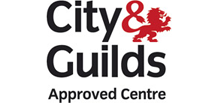

ECL Certificate
The Creation of the ECL Tests
After many years of professional preparatory work, the Member States of the European Union established a consortium in 1992, with London as its centre. With help from the ERASMUS programmes and later the LINGUA programmes, the objective of the Consortium was to develop standardised language tests for the Member States of the European Union. In accordance with the EU unification policy, the Member States that formed the Consortium wanted to ensure equivalence and mutual recognition of certificates for each language without the need for legal validation (nostrification).
Competence, Languages
The professional responsibility of the “ECL” language tests – ECL stands for “European Consortium for the Certificate of Attainment in Modern Languages” – was given to a prestigious university in the home country of each language. The chosen university constructs the tests and evaluates the papers. On the basis of the uniform criteria established in the first phase of standardisation, ECL exams can be taken in English, French, German, Hungarian, Italian, Polish, Rumainan, Bulgarian, Serbian, Slovak, Russian, Spanish, Croatian, Czech and Hebrew.
Features of the Test
The content and overall validity of the tests were established after extensive research by specialists and pilot tests on specific target groups. The ECL exams test oral and written ability to use everyday language on standard, professional and personal topics at varying degrees of complexity.
Comparability
Comparability is one of the important characteristics of the ECL tests. To ensure this, examinations as well as test materials and certificates are built on uniform principles. According to these uniform principles, the parameters and criteria for evaluation and the types of tasks are the same for each language.
Reliability
Each specialist member of the Consortium is responsible for test construction and marking in their own language. To ensure maximum reliability for the ECL tests, all items are pre-tested, examiners and markers are trained before each session, and a system of double marking is used. A committee of specialists for each of the languages being examined monitors the standards of question-setting, marking and awarding to ensure equivalence between levels of achievement across the languages.


